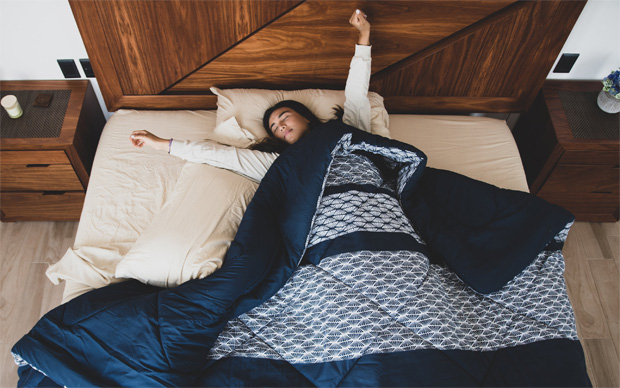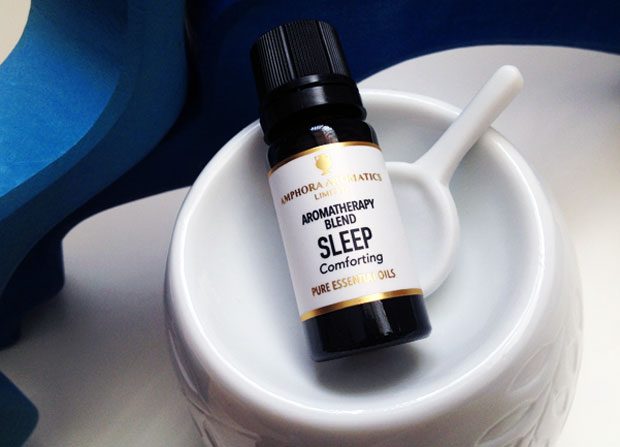Best Ways to Deal With Insomnia

Best Ways to Deal With Insomnia
Insomnia is a sleep disorder that affects millions of people around the world. It is characterized by difficulty falling asleep, staying asleep, or both. People who suffer from insomnia may also experience daytime fatigue, irritability, and anxiety. In some cases, insomnia can even lead to more serious health problems such as depression, heart disease, and diabetes.
There are many potential causes of insomnia, such as stress, physical discomfort, medications and lifestyle choices.
With more and more people suffering from insomnia, there is a great interest in resolving the difficulties it causes. Fortunately, there are also many treatments available to help people with insomnia get better sleep. With the right treatment, it is possible for sufferers of insomnia to get good quality restorative sleep and lead healthier, happier lives.

Consequences of Insomnia
Insomnia can have serious consequences if left untreated, including physical and mental health issues. Some of the most common effects include:
- Poor Concentration and Focus
Insomnia can lead to difficulty concentrating on tasks and remembering important information. This can result in poor decision making, increased errors, accidents, and a decrease in overall productivity.
- Weakened Immune System
Lack of sleep can weaken the body’s natural defenses against illnesses, making you more prone to illnesses like colds and flu.
- Depression and Anxiety
Insomnia can lead to feelings of depression and anxiety, as well as other mood disorders. It is important to seek help if you feel you may be suffering from depression or anxiety.
- Irritability and Fatigue
An inability to sleep can lead to feeling fatigued, irritable, and unmotivated throughout the day. This can have a negative effect on relationships with family and friends.
- Health Problems
Research has shown that insomnia is linked to an increased risk of developing certain chronic health conditions, such as diabetes, heart disease, and obesity.
If you believe you may be suffering from insomnia, it is important to seek help right away. Speak with your doctor or a mental health professional about the best ways to treat your condition so that you can get the restful sleep you need.
However, you can still try with some of these:

Tips for Dealing With Insomnia
Turns out there are plenty of things you could try on your own before seeing a professional. Some of these include:
- Develop a Sleep Routine
Establishing a regular sleep routine helps your body and mind get into the habit of falling asleep quickly and staying asleep. Try to go to bed and wake up at the same time every day, even on weekends.
- Follow Good Sleep Hygiene
Good sleep hygiene includes avoiding caffeine late in the day, turning off electronic devices an hour before bedtime, and avoiding alcohol.
- Exercise
Regular exercise can help improve sleep quality. Try to fit in at least 30 minutes of physical activity every day.

- Reduce Stress Levels
There are many activities that can help reduce stress levels, such as grounding, yoga, meditation, deep breathing exercises, and journaling. Practicing these activities regularly can help promote better sleep.
- Get Enough Sunlight During the Day
Spending at least 15 minutes in natural sunlight every day can help improve your body’s circadian rhythm and make it easier to fall asleep at night.
- Avoid Stimulants Before Bed
Try to avoid stimulants such as caffeine, nicotine and alcohol before bedtime. These can interfere with sleep and make it harder for you to get a good night’s rest.
- Create a Relaxing Bedtime Ritual
Establishing a relaxing bedtime ritual can help signal to your body that it is time to sleep. This could include taking a warm bath, reading a book or listening to calming music.

- Limit Naps During the Day
Taking too many naps during the day can disrupt your body’s natural sleep cycle and make it harder to fall asleep at night. Try to limit naps to no more than 30 minutes and avoid taking them late in the day.
- Avoid Eating Late at Night
Eating too close to bedtime can cause indigestion and interfere with sleep. Try to avoid eating at least two hours before bedtime.
- Practice Mindfulness Techniques Before Bedtime
If you want to ensure that the day’s worries don’t impact your sleep, try engaging in mindfulness meditation just before bedtime.
This helps to shift focus away from the things stressing you and towards a place of peace and acceptance.
A few minutes of meditation can help reduce stress hormones and relax both your mind and body, making it easier to drift off into a restful sleep.
Other mindfulness activities such as guided imagery or deep breathing exercises can also be beneficial for winding down before bedtime.

- Aromatherapy
Aromatherapy is a powerful natural remedy that can help improve your overall health and well-being, including aiding in better sleep.
Using essential oils to support relaxation and reduce stress can help create the perfect environment for restful sleep.
Lavender essential oil is one of the most popular choices for insomnia relief, but there are many other essential oils that can help promote better sleep.
Chamomile, sandalwood and ylang-ylang essential oils also have calming effects and are traditionally used to relax the body and mind prior to sleep.
To use aromatherapy for improved sleep, simply add a few drops of your chosen oil to an aroma diffuser or place some on a tissue and place it near your bed.
You can add a few drops of oil to a warm bath or massage some into your skin before settling down for the night. With regular use, aromatherapy can help promote better sleep and improved overall well-being.
When having trouble sleeping, make sure to create an environment that is conducive to sleep. Limit your exposure to light from electronics and try keeping the temperature in your bedroom comfortable and cool. Try to keep a consistent sleep schedule to help regulate your body’s natural circadian rhythm.
Test the power of aromatherapy. Lavender oil or an herbal pillow mist can be used to create a calming and soothing atmosphere in your bedroom.

Final Words
By making these simple changes in your nighttime routine, you can create a peaceful and restful environment before bedtime.
With proper relaxation techniques, you can make sure that worries of the day won’t keep you from getting the restful sleep your body needs.
If you’re still having trouble sleeping, it may be beneficial to speak to your doctor. They can help determine the underlying cause and recommend treatments that will help you get a good night’s rest.
| Article by Maria Foster.




